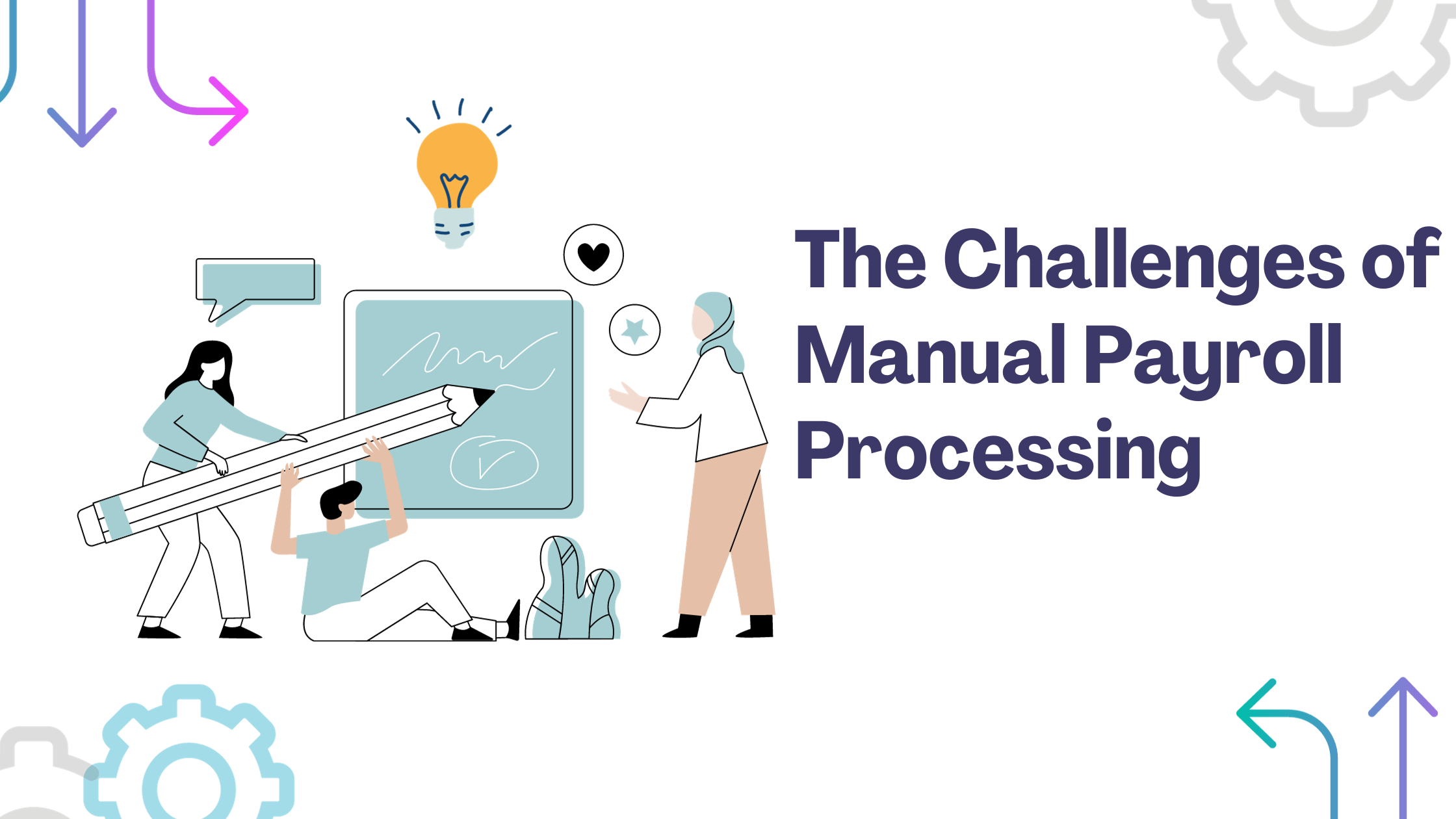What is Payroll Management?
Payroll management is a crucial aspect of running a successful business. It involves the accurate and timely distribution of employee compensation, including salaries, deductions, and benefits. In this comprehensive guide, we will delve into the intricacies of payroll management, providing a detailed overview of key concepts, challenges, best practices, and the benefits of automation. Whether you’re a seasoned HR professional or a small business owner, this guide aims to equip you with the knowledge and tools needed to excel in payroll management.
The Building Blocks of Payroll
Payroll is the process of calculating and distributing wages to employees. It involves several components, such as wages, hours worked, benefits, tax deductions, and compliance with federal and state regulations. The complexity of payroll can vary depending on the size of the organization, budget constraints, and the available time.

The Building Blocks of Payroll
Understanding Salary Calculations
Payroll management starts with understanding how to calculate salaries accurately. Regardless of whether your employees are paid hourly or on a fixed salary, you must account for various compensation components, such as overtime, bonuses, and deductions. Sometimes, new Human Resources professional wonder is payroll hard to learn?
Below is an example to clarify the basics:
- Hourly Employees:
For hourly employees, the calculation is relatively straightforward. You multiply the number of hours worked by the hourly rate. For example, if an employee works 40 hours a week at a rate of $15 per hour, the calculation would be: 40 hours x $15 = $600.
- Salaried Employees:
Calculating salaries for salaried employees is usually more straightforward. You divide the annual salary by the number of pay periods in a year. For instance, if an employee has an annual salary of $50,000 and is paid bi-weekly, the calculation would be: $50,000 / 26 (bi-weekly pay periods) = $1,923.08 per paycheck.
- Overtime Calculation:
When hourly employees work more than their regular hours in a pay period, they become eligible for overtime pay. Overtime pay is typically calculated as 1.5 times the regular hourly rate for each additional hour worked. For example, if the regular hourly rate is $15, and an employee works 45 hours in a week, the calculation for overtime pay would be: 5 hours x $15 x 1.5 = $112.50 in overtime pay.
- Bonuses and Additional Compensation:
Bonuses, commissions, or other additional compensation components can be added to an employee’s regular pay. These are typically paid in addition to the regular salary or hourly wage. When calculating payroll, you would add the bonus or commission to the regular pay to determine the total compensation for that pay period.
Example Scenario
Suppose you have an hourly employee, John, who worked 42 hours in a week at a rate of $16 per hour. John also received a $100 bonus in that pay period. Here’s how you would calculate his total pay for the week:
Regular pay: 40 hours x $16/hour = $640
Overtime pay: 2 hours x $16/hour x 1.5 = $48
Bonus: $100
Total Pay = Regular pay + Overtime pay + Bonus
Total Pay = $640 + $48 + $100 = $788
John’s total pay for that week would be $788.
Understanding these salary calculation basics is essential for accurate and fair compensation. It ensures that employees are paid correctly for their time and any additional compensation components. Accurate salary calculations are the foundation of a well-managed payroll system.
Navigating Deductions and Withholdings in Nigerian Payroll
Deductions in payroll management, encompass various elements that require a keen understanding to ensure accurate and compliant payroll processing. Let’s break down the key types of deductions, explain their significance, and outline the steps to ensure precision in payroll management:
1. Tax Deductions:
Personal Income Tax (PAYE): The Personal Income Tax is a significant deduction in Nigerian payroll. It is deducted from the employee’s gross pay in compliance with the Personal Income Tax Act. The significance of this deduction lies in its contribution to government revenue and the legal obligation for both employers and employees to ensure timely payment. To ensure accurate deductions, it’s vital to keep up with changing tax rates and slabs, as they may vary by state.
2. Pension Contributions:
Contributory Pension Scheme (CPS): Under the Pension Reform Act 2014, employees in Nigeria are required to contribute a portion of their salary to the Contributory Pension Scheme. Employers also make contributions to the employee’s Retirement Savings Account (RSA). The significance of this deduction lies in ensuring financial security for employees in their retirement years. To ensure accuracy, the contribution rates and timely remittances must be adhered to, and records must be kept up to date.
3.National Housing Fund (NHF):
National Health Insurance Scheme (NHIS): Contributions to the NHIS provide access to healthcare services for employees and their dependents. The significance of this deduction is to ensure access to quality healthcare. Precision in deductions is essential for employee health and compliance with NHIS regulations.
4, Health Insurance Deductions:
National Health Insurance Scheme (NHIS): Contributions to the NHIS provide access to healthcare services for employees and their dependents. The significance of this deduction is to ensure access to quality healthcare. Precision in deductions is essential for employee health and compliance with NHIS regulations.
5. Loan Repayments:
Loan Deductions: Employees may have loans or advances taken from their employer. The significance of these deductions is to recover the loaned amount. Accuracy is crucial to ensure that the agreed-upon repayment schedule is followed
6. Other Deductions:
Deductions for other items such as union dues, cooperative society contributions, and staff welfare programs can be part of the payroll deductions. These deductions are significant for various reasons, including supporting employee associations and initiatives. Ensuring accuracy involves understanding the specific rules and regulations governing each deduction.
Ensuring Accurate Deductions
- Compliance Awareness: Stay informed about changes in tax rates, contribution percentages, and deductions that are mandated by government agencies. Compliance is crucial to avoid penalties.
- Regular Audits: Conduct regular audits to verify that the right deductions are being made from employees’ salaries. This helps catch discrepancies early and correct them.
- Maintain Updated Records: Accurate record-keeping is essential. Keep detailed records of all deductions made, including the amounts, dates, and purpose of each deduction.
- Employee Communication: Clearly communicate with employees regarding any deductions made from their salaries. Transparency fosters trust and reduces confusion.
- Automated Payroll Software: Utilize reliable payroll software that can accurately calculate and track deductions, reducing the margin of error. One of such payroll software is paybox360

The Challenges of Manual Payroll Processing
Manual payroll processing is riddled with various challenges that can adversely affect an organization’s payroll management. In this section, we will address some of the most common pitfalls associated with manual processing and highlight the significance of avoiding these errors:
The challenges in payroll are:
- Data Entry Errors:
Manual payroll calculations are prone to human errors, such as mistyped numbers or miscalculations. These errors can lead to incorrect paychecks, tax discrepancies, and employee frustration. Ensuring accuracy in payroll is not just a matter of compliance; it’s crucial for maintaining a positive work environment and employee trust.
- Time-Consuming Calculations:
Manual payroll calculations require significant time and effort. HR personnel spend hours inputting data, performing calculations, and verifying accuracy. This time could be better spent on strategic HR activities, such as talent management and employee development. The significance of this challenge lies in the lost productivity and reduced efficiency associated with manual tasks.
- Inaccuracies affect Employee Satisfaction:
Inaccurate payroll processing can lead to delays in salary payments and discrepancies in employee compensation. Such issues can have a direct impact on employee satisfaction and morale. Disgruntled employees are less motivated and may seek employment elsewhere, leading to increased turnover and potential recruitment costs.
Payroll Automation
Payroll automation is the key to streamlining your business operations and ensuring payroll accuracy. Automating your payroll processes has several advantages and Paybox360 is an example of a robust payroll software solution.
The Benefits of Payroll Automation:
- Enhanced Accuracy: Automating payroll calculations reduces the risk of human errors, ensuring that your employees are paid accurately and consistently.
- Time and Cost Savings: Manual payroll processing is labor-intensive and time-consuming. By transitioning to automation, you can save valuable time and reduce operational costs. This means that your HR team can focus on more strategic tasks, enhancing overall productivity.
- Improved Employee Satisfaction: Automated payroll systems, such as Paybox360, generate reliable and error-free paychecks. This consistency fosters higher employee satisfaction and morale, as they can depend on timely and accurate payments.
Introducing Paybox360
Setting up payroll is a crucial step for any business. This process typically involves:
Paybox360 is a prime example of a powerful payroll software solution that streamlines payroll management for businesses. Here’s why Paybox360 stands out:
- Comprehensive Features:
- Scalability
- Seamless Compatibility that integrates with your existing systems and HR processes.
Automating your payroll processes with software solutions like Paybox360 is an investment in accuracy, efficiency, and employee satisfaction. The benefits are substantial, and Paybox360 serves as an outstanding example of a payroll software that can elevate your organization’s payroll management to new heights. Explore Paybox360 today to experience the advantages of automated payroll processes and discover how this solution can benefit your business.





